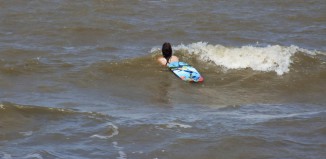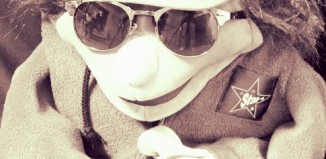Syndicated
#rhizo14 – week 2: Seeding independent learning: wrestling with writing
Beyond me.
‘The underbelly of education according to Karen’
Everything We Leave Behind | zchamu dot com
On the edge.
The Opening Speech
Becoming Animal: Does cheating really exist? #Rhizo14
Becoming Animal. Does Cheating really exist?
Actually Enjoying the Grading Process?
A new year and a new book
Cross posted from the Connected Learning Research Network Leveling Up project blog
It’s the start of a new year and time to take stock. It’s been three years since the launch of the Connected Learning Research Network and the Leveling Up project, and a year and a half since the launch of this blog. Along the way, we’ve delved into stories of knitters, boy band and wrestling fans, fashionistas, eSports enthusiasts, and game makers, as well as how the online world is supporting their learning, sharing, and civic engagement. The cases we’ve developed over these years have both confirmed many of the core values and principles of the connected learning model, as well as challenged them in some unexpected ways.
Following from the digital youth project, we’ve found that the online world, even as it has expanded into more diverse areas of interests, platforms, and mobile devices, continues to be a rich source of not only social connection, but of peer learning. We’ve also confirmed that while interest-specific learning flourishes online, it takes a unique and uncommon confluence of factors for that learning to connect to academic, career, or civic realms. We continue to puzzle over a core problematic of the connected learning research: what are ways in which we can more actively support these connections for diverse youth and their interests?
The cases have given us glimpses into how to answer that question in ways that deserve further investigation, and are the focus of a new round of research that we will be kicking off this year. In addition to continuing to observe the salience of peer sharing, reputation, and self-directed learning in online communities, some of the fashion and Starcraft work has shown us the kinds of roles that parents can play in supporting connected learning. When educators engage with youth interests, we also see them mediating between fan activity, gaming interest, and school. We were also delighted that we were around to observe interest groups activate around shared purpose and problems that can be mathematical or political in nature when the opportunity presents itself. Some members of the team have dived into an online experiment to support our own connected learning moments through a new web platform.
The diversity of cases that we’ve delved into have given us a new opportunity to interrogate what the barriers and challenges are to getting youth interests connected to adult-facing opportunities. We’ve seen that the winding pathways through which interests are cultivated, abandoned, altered, and revisited create challenges for researchers who are working to document that outcome of interest-driven learning and educators who seek to support it. Further, the specific nature of the interest, and the culture and identity associated with it have a strongly determinist effect on whether that interest can be productively connected to schools, careers, and civic engagement. For example, gamers and boy band fans may be learning a tremendous amount through their interest-driven engagements, but both the youth participants and the parents and teachers in their lives may be resistant to seeing these activities as academically relevant. The cases also demonstrate how the devil is in the details of how particular communities and programs are organized, and creating a high-functioning connected learning environment requires constant tending and adaptation.
These are examples of the kinds of topics and themes that have emerged as salient in our analysis. As we continue to mine our cases and data, we will transition the focus of this blog from reports from the field to analysis that sets the stage for the collectively authored book that we are writing over the next few months. The book will provide an overview of the cases and how they map a divergent field of youth interests, and focus on cross-cutting themes and dynamics that are illuminated by these different examples. We will look at the specific characteristics of interest-centered learning environments that support practices of help and feedback, reputation building, and shared purpose. Stories of individual learners and pathways will describe the varied trajectories we have observed of young people’s developing and changing interests and learning. We will also take a look at outcomes that are academic, career, and civic in nature. We are excited to be able to share the next phase of our work in this fresh new year!
Rhizomatic practice, cosmic interventions and time bending: What constitutes cheating when reframing academic space?
And it hit him so.
He's less than within us the Brains talk But the will to live is dead And prayer can't Travel so far these days. The talk of your lives Standing so near Two innocent eyes Poor dunce Swings through the tunnels and claws his way Is small life so manic Are these really the days
Poor dunce Poor dunce.









